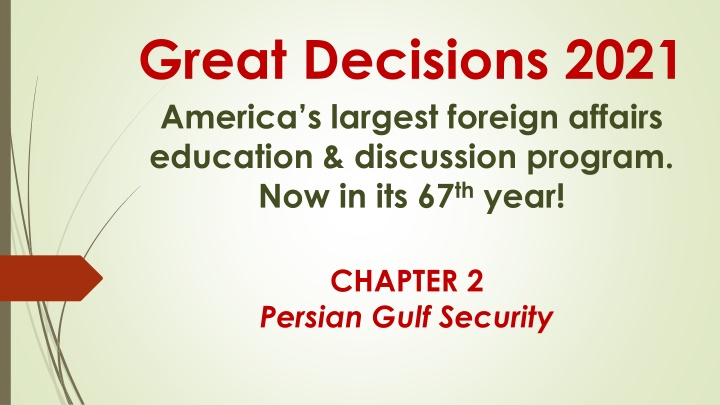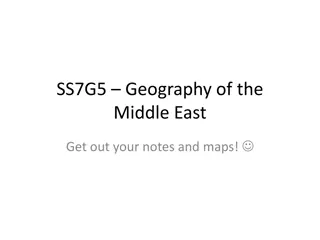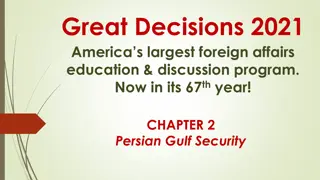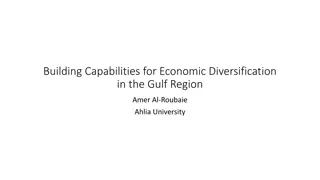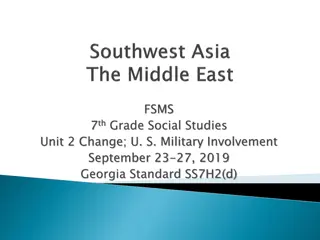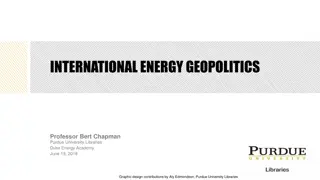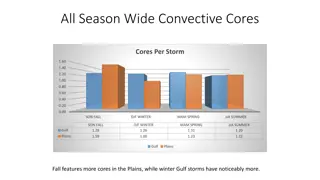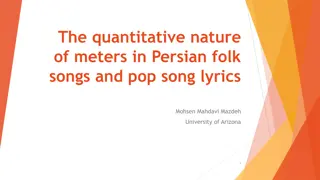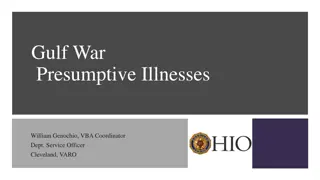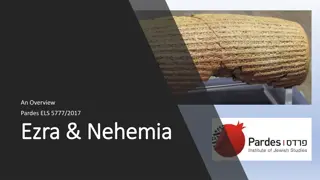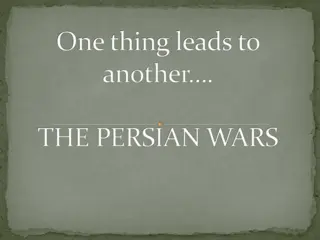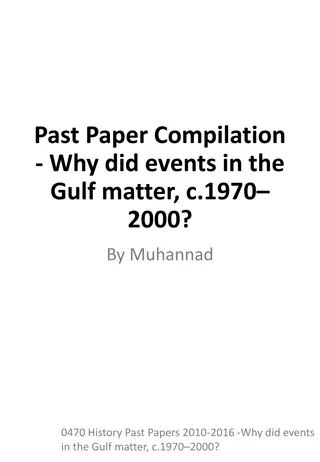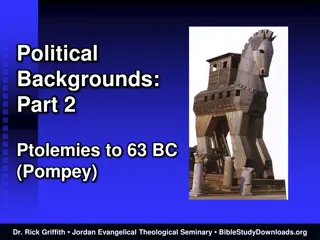Gulf History: Key Events and Developments in the Persian Gulf Region
Explore the rich history of the Persian Gulf region, from the post-WWI era to present-day tensions and agreements. Discover significant events such as the Gulf Wars, U.S. military involvement, Iran's nuclear activities, and recent diplomatic shifts. Understand the complex dynamics between nations in the Gulf Cooperation Council (GCC) and major global players.
Download Presentation

Please find below an Image/Link to download the presentation.
The content on the website is provided AS IS for your information and personal use only. It may not be sold, licensed, or shared on other websites without obtaining consent from the author.If you encounter any issues during the download, it is possible that the publisher has removed the file from their server.
You are allowed to download the files provided on this website for personal or commercial use, subject to the condition that they are used lawfully. All files are the property of their respective owners.
The content on the website is provided AS IS for your information and personal use only. It may not be sold, licensed, or shared on other websites without obtaining consent from the author.
E N D
Presentation Transcript
Great Decisions 2021 America s largest foreign affairs education & discussion program. Now in its 67thyear! CHAPTER 2 Persian Gulf Security
The Eight Gulf States Nation State Iran Iraq Saudi* UAE* Oman* Kuwait* Qatar* Bahrain* TOTAL Pop (mil.) 83 38 34 10 4.9 4.4 2.8 1.6 ~180 Area (sq. mi.) 636,000 169,000 830,000 32,000 120,000 6,900 4,500 300 1,800,000 % Shia/ Sunni ~95/5 ~60/40 ~20/80 ~15/85 ? ~40/60 ~10/90 ~62/38 Shia>Sunni *Gulf Cooperation Council (GCC)
Timeline of Gulf History Post WWI Defeat of Ottoman Empire left Great Britain to draw modern state borders and lead oil exploration 1953 U.S. and Britain collude to overthrow democratically-elected Mossadegh government over oil nationalization 1971 British withdraw from the Gulf, leaving U.S. dominant. U.S. outsourced Gulf security to Saudi/Iran Twin Pillars 1978/9 Iranian Revolution, leading U.S. to shift security focus to Gulf Cooperation Council (GCC) 1987 U.S. expands military presence to protect oil tankers and oil flow in Gulf, threatened by Iran/Iraq war
Timeline of Gulf History (cont.) 1990/91 Gulf War, pushing Iraq out of Kuwait & escalating U.S. military involvement U.S. 5th fleet in Bahrain, a major army bases in Kuwait, and a key airbase in Qatar. (presently ~45,000-65,000 U.S. troops in Gulf region) 2002 George Bush designates Iran part of an Axis of Evil 2003 U.S. invades Iraq to overthrow Saddam & seek WMD 2009/10 U.S. & Israel infect & disable computers in Iranian nuclear plant 2011 Arab Spring thoroughly rattles Gulf monarchs. U.S. supports overthrow of Mubarak in Egypt but quietly supports ruling families in Gulf (Saudi Arabia & Bahrain)
Timeline of Gulf History (cont.) 2015 Joint Comprehensive Plan of Action (JCPOA or Iran Nuclear Agreement) signed between Iran and the 5 permanent members of the UN Security Council. 2017 Conflict arises between Qatar and quartet of adversaries: Saudi, UAE, Bahrain, and Egypt. Qatar shifts trading relationships to Turkey & Iran, collapsing GCC. 2018 U.S. withdraws from JCPOA & seeks to persuade the UN Security Council to re-impose pre-deal sanctions on Iran 2019 Iran launches air attacks against a Saudi Aramco oil facility
Timeline of Gulf History (cont.) 2020 U.S. drone assassinates Iranian General Soleymani. Abraham Accords normalize relations between Israel and UAE & Bahrain (joining Egypt & Jordan). 2021 Biden announces intent to: quit selling arms to Saudi Arabia used to fight in Yemen civil war end sanctions & rejoin JCPOA if Iran comes back into compliance
Policy Options facing Biden Administration Stay or go in the Gulf? By 2018, U.S. importing, only 15% of its oil from Gulf. Demand for oil greatly reduced now. Reduce military and shift to political/economic diplomacy? Future of U.S. bases? Pull back to pre-1990 deployment from Indian Ocean, allowing for more robust critique of human rights abuses? Does there continue to be a need to police threats to navigation? Renew Iran deal? Does the original deal serve our interests, or do we need to push for broader conditions? Support a Gulf security organization? Is it possible to include all Gulf states, encouraging more self-sufficiency and collaboration? Does a potential U.S. pullback push states toward cooperation or conflict?
